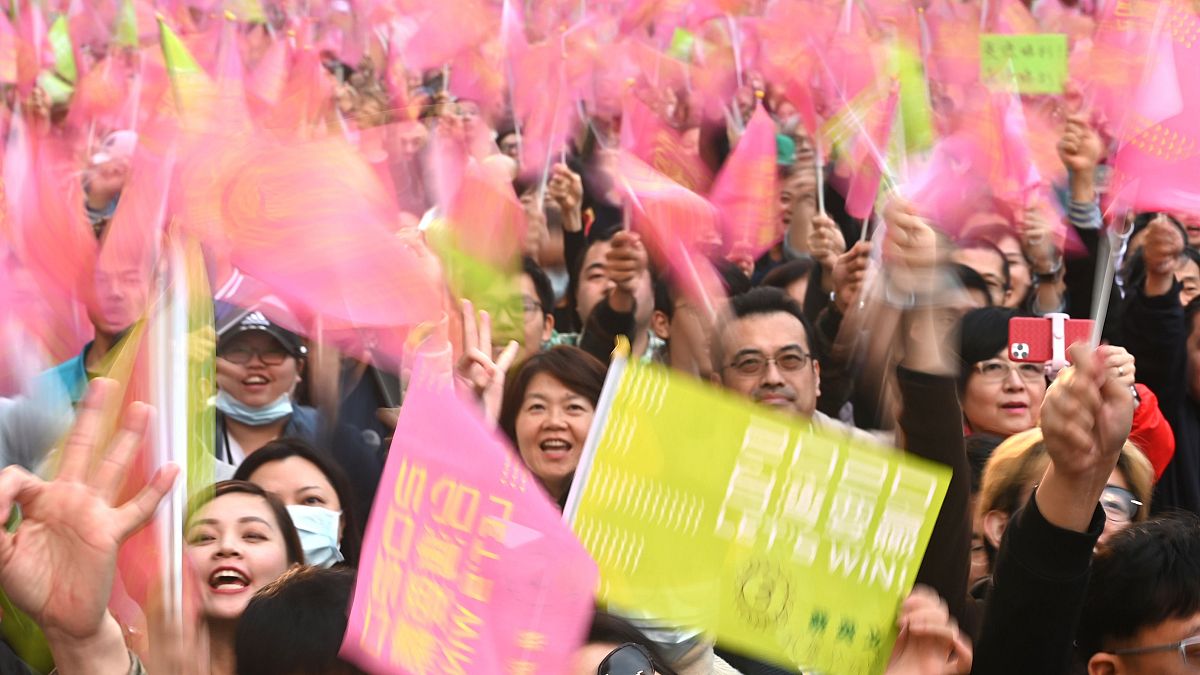Beijing considers self-governing Taiwan a renegade province to be brought under its control, by force if necessary.
TAIPEI, Taiwan — Taiwanese President Tsai Ing-wen has won a second term, signaling strong voter support for her tough stance against China.
Tsai defeated two challengers in Saturday's election — Han Kuo-yu of the rival Nationalist Party and James Soong of the smaller People First Party.
Han told supporters in the southern port city of Kaohsiung that he had called to congratulate Tsai on her victory.
Voters chose Tsai's tough stance against China over Han's arguments for friendlier ties with Beijing, which considers self-governing Taiwan a renegade province to be brought under its control, by force if necessary.
China's communist leaders have taken an especially hard line against Tsai since her 2016 inauguration, infuriated by her refusal to endorse its claim that Taiwan and the mainland belong to a single China. Her victory will likely deepen that deadlock and ratchet up pressure from Beijing.
Taiwan has developed its own identity since separating from China during civil war in 1949 but has never declared formal independence. Beijing still claims sovereignty over the island of 23 million people and threatens to use force to seize control if necessary.
For many in Taiwan, months of anti-government protests in Hong Kong, a semi-autonomous Chinese territory, have driven home the contrast between their democratically governed island and authoritarian, communist-ruled mainland China.
Tsai portrayed the election as a chance to protect Taiwan's democracy.
"Let us tell the world with our own votes that Taiwanese are determined to defend sovereignty, determined to guard democracy and determined to persist in reforms," she said at a rally late Friday.
Fears of Chinese interference in Taiwan's politics and an uptick in the economy helped Tsai regain an edge after a dire electoral setback for her Democratic Progressive Party, or DPP, 14 months ago.
A second term for Tsai is expected to draw more diplomatic, economic and military pressure from Beijing on the island, in a continuation of Chinese President Xi Jinping's campaign to compel her administration to endorse its insistence that Taiwan is a part of China.
Tsai has refused to do so, maintaining that Beijing has no claim over Taiwan, although her government has repeatedly called for the reopening of talks between the sides without preconditions.
Since its transition to full democracy beginning in the 1980s, Taiwan has increasingly asserted its independent identity from China even though it is not recognized by the United Nations or any major nation.
